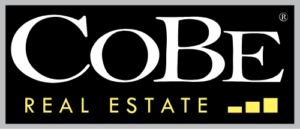Pros Offer Tips for Best Commercial Real Estate Investing
The advantages of real estate investing have been touted over the years as a profitable, consistent source of passive income that can continue to generate funds over the span of many years. While both residential and commercial real estate investments have proven to meet each of these qualifications in recent years, commercial real estate often holds better financial rewards for investors as compared to residential properties. However, there can also be increased financial risk depending on the terms of your deal.
No two commercial real estate investments are the same. Identifying these key differences and using the information available to pinpoint which properties to invest in, when the opportunity is ideal, and how to proceed once the time is right are crucial to determining whether a commercial real estate investment will be successful or ultimately fail. This brief set of commercial real estate investing tips is designed to assist potential real estate investors in reviewing some of the most important strategies, common mistakes, and other risks associated with commercial real estate investments.
1. Know Your Market
“Know your market” is a common catchphrase among residential realtors and commercial real estate agents for a reason; it is essential to know as much as you can about the market area you’re considering before you pursue investment. Not only does each unique area have its own characteristics, but its own supply and demand as well. Before you make a purchase, you’ll want to investigate your target market to determine the needs there, as well as the probable success of an investment.
Research the current supply of commercial investment types in the area, focusing on those you hold most interest in. In addition, keep an ideal working size or function in mind, including any improvements you’d be willing to make to a property. If multiple properties of this type and size are currently on the market, you may risk entering a saturated market.
Alternatively, if you are open to numerous types of properties, watch for property types that seem underserved for the area. These properties are often more in demand than the average property and have the potential to be lucrative. However, additional research regarding the potential for future growth should not be overlooked.
2. Commercial Property Type Matters
There are many commercial property types, and each comes with its own unique set of challenges and advantages. For instance, multi-unit, commercial residential properties usually demand the services of a maintenance staff or individual, available 24/7 or as emergencies occur for each individual unit. Commercial office or retail space comes with unique maintenance issues of its own, while industrial properties often require special licensing for technicians working around large machinery.
While there are certainly many considerations other than maintenance involved with commercial properties, such as security, repair costs, and more, the point is that it is essential to determine your readiness for handling the issues that come with each property type.

In addition, the supply and demand and ultimately the profitability of commercial property is largely dependent on the type of property you’ve chosen.
In general, commercial property consists of five main sectors, including multifamily, office, retail, industrial, and special purpose. However, within those types exist subgroups, such as hotel properties, medical facilities, and many others. Extensive research into which types are most profitable in your chosen market can help you make the most of your commercial real estate investment.
3. Build Up Adequate Down Payment & Reserves Funds
Commercial property investment requires, on average, a larger initial investment than residential property. Property values are usually higher, and when coupled with regular 20 to 30% down payment requirements, you’ll need more capital up front. Consider, too, that any immediate expenses you’ll need to undertake, such as remodeling, maintenance, rezoning, and other fees, are typically more substantial than residential real estate costs.
As such, you should build a contingency fund into your initial cost estimates for your commercial property purchase. This fund will help pay for unexpected expenses in excess of the purchase amount, expenditures for improvements before you find renters, and other various costs. Depending on your lender, you may be required to show a 5 to 15% contingency budget.
After you’ve made your purchase, it’s ideal to have additional capital reserves to cover expenses if further unexpected situations or the need for other improvements arise throughout the life of the loan. If you need to replace a roof or cover expenses between tenants, for example, having cash in a reserve fund or account to meet these needs is a good practice. Plan on reserving between three and five percent of your gross rent for these purposes.
4. Do Your Due Diligence
In commercial real estate, due diligence isn’t just an expression used for “doing your research,” although that is primarily the gist of what you’ll do during this time period. For the commercial real estate investor, the due diligence time period is where you’ll do comprehensive research on the property you’ve chosen. Information you’ll need will include:
- Your financial statements
- Previous owners’ profits and losses
- Tax returns
- Surveys (if necessary)
- Property tax and zoning information
- Property inspections
- Feasibility studies
With your necessary information in hand, determine whether your property can be used as you intend (crucial if you’re developing vacant land), which improvements it can feasibly or legally support, as well as what the local market looks like for both of these factors. Due diligence is also the perfect time to learn all you can about the city or county that covers the property, particularly regarding permitting, zoning, applicable ordinances, and associated fees.
Finally, you’ll need to do your due diligence regarding your lender and other investors as well. Speak with others who have worked with this broker to get a feel for what’s expected of you during this time as well as what their procedures for due diligence consist of. If you’re entering a partnership or real estate investment trust, you may want to consider conducting a background check.
5. Plan for the Unexpected
Planning for the unexpected may seem like an oxymoron, but preparing yourself to experience at least a few setbacks, unplanned hurdles and even failures along the way will make dealing with them once the situation arrives much easier. Whether you’re starting a partnership or real estate investment trust, awaiting confirmation from a municipality or forging a construction contract, working with other people has the potential to alter your timeline beyond your initial plans. Taking precautionary steps like building plenty of extra time into any improvement timeline to account for unexpected delays or increasing your contingency funds to cover potential additional costs unique to your property type can prevent you from financial and emotional stress later.
Once you’ve made your initial investment, it’s also important to remain flexible regarding your expected returns. Potential hurdles include waiting for tenants, changing management, and implementing your initial rental terms. Your timeline and capital reserves should be able to withstand these common issues.

Work With a Seasoned Team
If you’re considering investing in commercial real estate, I urge you to use these five tips to your advantage. You’ll find yourself better prepared to enter into the commercial real estate world, and your first meeting with your broker will proceed smoothly. A wealth of other commercial investing tips, tricks, and advice can be found elsewhere on this blog.
When you’re ready to learn more about either commercial real estate investing in general or the properties currently available in the Phoenix area, contact COBE Real Estate at your earliest convenience. Our seasoned brokerage team can assist you on your way to commercial real estate ownership with all the necessary precautions.
Complete our contact form to request a consultation, or call 480-610-2400.

